10 start with F start with F
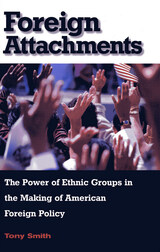
Who speaks for America in world affairs? In this insightful new book, Tony Smith finds that, often, the answer is interest groups, including ethnic ones. This seems natural in a country defined by ethnic and cultural diversity and a democratic political system. And yet, should not the nation's foreign policy be based on more general interests? On American national interests?
In exploring this question, Smith ranges over the history of ethnic group involvement in foreign affairs; he notes the openness of our political system to interest groups; and he investigates the relationship between multiculturalism and U.S. foreign policy. The book has three major propositions. First, ethnic groups play a larger role in the formulation of American foreign policy than is widely recognized. Second, the negative consequences of ethnic group involvement today outweigh the benefits this activism at times confers on America in world affairs. And third, the tensions of a pluralist democracy are particularly apparent in the making of foreign policy, where the self-interested demands of a host of domestic actors raise an enduring problem of democratic citizenship--the need to reconcile general and particular interests.
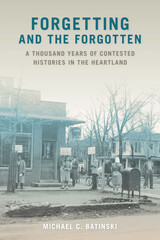
Revealing the forgotten in community histories
Histories try to forget, as this evocative study of one community reveals. Forgetting and the Forgotten details the nature of how a community forged its story against outsiders. Historian Michael C. Batinski explores the habits of forgetting that enable communities to create an identity based on silencing competing narratives. The white settlers of Jackson County, Illinois, shouldered the hopes of a community and believed in the justice of their labor as it echoed the national story. The county’s pastkeepers, or keepers of the past, emphasizing the white settlers’ republican virtue, chose not to record violence against Kaskaskia people and African Americans and to disregard the numerous transient laborers. Instead of erasing the presence of outsiders, the pastkeepers could offer only silence, but it was a silence that could be broken.
Batinski’s historiography critically examines local historical thought in a way that illuminates national history. What transpired in Jackson County was repeated in countless places throughout the nation. At the same time, national history writing rarely turns to experiences that can be found in local archives such as court records, genealogical files, archaeological reports, coroner’s records, and veterans’ pension files. In this archive, juxtaposed with the familiar actors of Jackson County history—Benningsen Boon, John A. Logan, and Daniel Brush—appear the Sky People, Italian immigrant workers, black veterans of the Civil War and later champions of civil rights whose stories challenge the dominant narrative.

Here is the history of the disintegration of the Russian Empire, and the emergence, on its ruins, of a multinational Communist state. In this revealing account, Richard Pipes tells how the Communists exploited the new nationalism of the peoples of the Ukraine, Belorussia, the Caucasus, Central Asia, and the Volga-Ural area--first to seize power and then to expand into the borderlands.
The Formation of the Soviet Union acquires special relevance in the post-Soviet era, when the ethnic groups described in the book once again reclaimed their independence, this time apparently for good.
In a 1996 Preface to the Revised Edition, Pipes suggests how material recently released from the Russian archives might supplement his account.
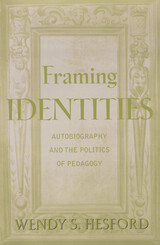
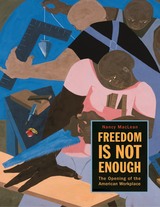
In the 1950s, the exclusion of women and of black and Latino men from higher-paying jobs was so universal as to seem normal to most Americans. Today, diversity in the workforce is a point of pride. How did such a transformation come about?
In this bold and groundbreaking work, Nancy MacLean shows how African-American and later Mexican-American civil rights activists and feminists concluded that freedom alone would not suffice: access to jobs at all levels is a requisite of full citizenship. Tracing the struggle to open the American workplace to all, MacLean chronicles the cultural and political advances that have irrevocably changed our nation over the past fifty years.
Freedom Is Not Enough reveals the fundamental role jobs play in the struggle for equality. We meet the grassroots activists—rank-and-file workers, community leaders, trade unionists, advocates, lawyers—and their allies in government who fight for fair treatment, as we also witness the conservative forces that assembled to resist their demands. Weaving a powerful and memorable narrative, MacLean demonstrates the life-altering impact of the Civil Rights Act and the movement for economic advancement that it fostered.
The struggle for jobs reached far beyond the workplace to transform American culture. MacLean enables us to understand why so many came to see good jobs for all as the measure of full citizenship in a vital democracy. Opening up the workplace, she shows, opened minds and hearts to the genuine inclusion of all Americans for the first time in our nation’s history.
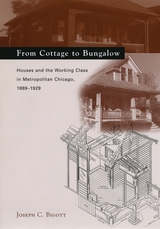
Joseph C. Bigott takes on all of these fields in From Cottage to Bungalow, a sophisticated study of domestic structures and ethnic working-class neighborhoods in Chicago during the critical period of 1869 to 1929, when the city attracted huge numbers of immigrants. Exploring the meaning of home ownership in this context, Bigott develops two case studies that combine the intimate lives of ordinary people (primarily in Chicago's Polish and German communities) with broad analysis of everything from real estate markets to the very carpentry practices used to construct houses. His progressive methods and the novel conclusions they support chronicle not only the history of housing in Chicago, but also the organizations of people's lives, and the ways in which housing has affected notions of who is—and who is not—a worthy American citizen.

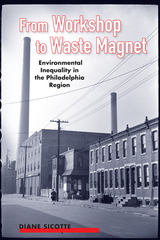
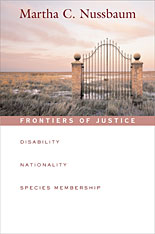
Theories of social justice are necessarily abstract, reaching beyond the particular and the immediate to the general and the timeless. Yet such theories, addressing the world and its problems, must respond to the real and changing dilemmas of the day. A brilliant work of practical philosophy, Frontiers of Justice is dedicated to this proposition. Taking up three urgent problems of social justice neglected by current theories and thus harder to tackle in practical terms and everyday life, Martha Nussbaum seeks a theory of social justice that can guide us to a richer, more responsive approach to social cooperation.
The idea of the social contract--especially as developed in the work of John Rawls--is one of the most powerful approaches to social justice in the Western tradition. But as Nussbaum demonstrates, even Rawls's theory, suggesting a contract for mutual advantage among approximate equals, cannot address questions of social justice posed by unequal parties. How, for instance, can we extend the equal rights of citizenship--education, health care, political rights and liberties--to those with physical and mental disabilities? How can we extend justice and dignified life conditions to all citizens of the world? And how, finally, can we bring our treatment of nonhuman animals into our notions of social justice? Exploring the limitations of the social contract in these three areas, Nussbaum devises an alternative theory based on the idea of "capabilities." She helps us to think more clearly about the purposes of political cooperation and the nature of political principles--and to look to a future of greater justice for all.
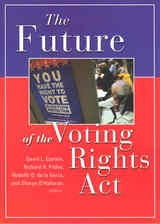
READERS
Browse our collection.
PUBLISHERS
See BiblioVault's publisher services.
STUDENT SERVICES
Files for college accessibility offices.
UChicago Accessibility Resources
home | accessibility | search | about | contact us
BiblioVault ® 2001 - 2024
The University of Chicago Press









